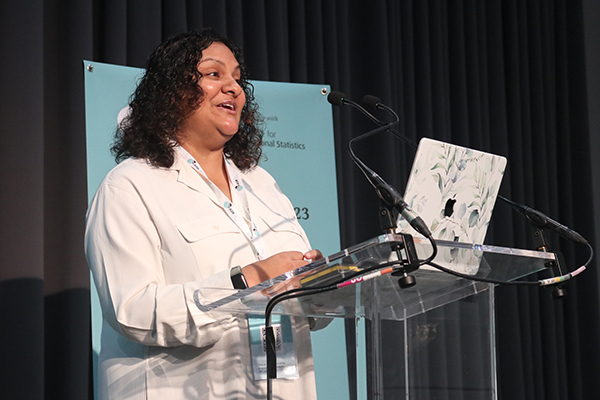‘Research to support renewal, recovery and resilience’ – Rohini Mathur gives keynote speech at the ADRUK annual conference
The Administrative Data Research UK (ADRUK) annual conference will take place in Birmingham on 14-16 November, with the theme ‘Public data for resilience and inclusion’. The event brings together researchers, data scientists and civil servants from across the UK, to share insights and methodologies that use routinely-collected data for public benefit.

Photo courtesy of ADRUK.
Professor Rohini Mathur is one of four expert keynote speakers. She will discuss the role of research to support renewal, recovery and resilience; referencing CEG’s work linking administrative data with health records to understand the wider determinants of health. Her address will focus on how research has evolved to support our health and social care systems in light of the dual shocks of the pandemic and cost of living crisis, and the opportunities this has presented for new approaches to complex problems which require us to consider the wider determinants of health in a holistic manner, bringing together multidisciplinary approaches. See Rohini’s keynote at 1.10pm on 16 November.
Understanding household health
CEG’s Nicola Firman and Marta Wilk will also present research at the conference. Nicola linked electronic health records with data from the National Child Measurement Programme (NCMP) and studied children who live together. She will present her finding that younger children are 4.6 times more likely to be living with obesity if they share a household with an older child with obesity. Nicola presents at 4pm on 15 November.
Marta Wilk will share estimates of household and population sizes, comparing results from electronic health records with Census 2021. She found that health records produced similar results to Census 2021 for population sizes, with some overestimation for people aged 30-50. There was a good agreement for small and middle size households, with health records overestimating the number of big households. See Marta’s presentation at 2.40pm on 16 November.
How do we know who lives together?
Using administrative data in household health research unlocks powerful insight into the wider determinants of health. But to analyse this data by household, we must first be able to group the de-identified health records of patients who share a home. This is not easily done using the information routinely collected in GP health records - addresses are written in free text, so they are not standardised or easily matched. To make these studies possible, CEG researchers are building on their previous work on ‘ASSIGN’ - an algorithm that matches free text addresses with the standardised addresses in an Ordnance Survey database. It then assigns the corresponding Unique Property Reference Number (UPRN) to each health record, enabling anonymised household grouping and linkage to administrative information about the property. More about ASSIGN.
More information
- Visit the ADRUK Annual Conference website
- For media information, please contact press@qmul.ac.uk